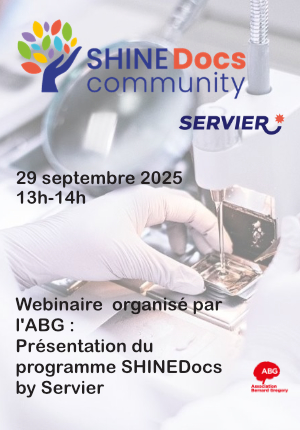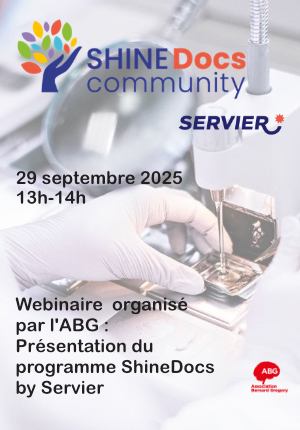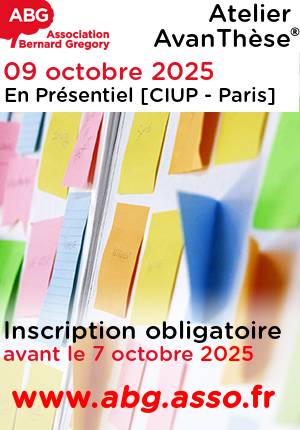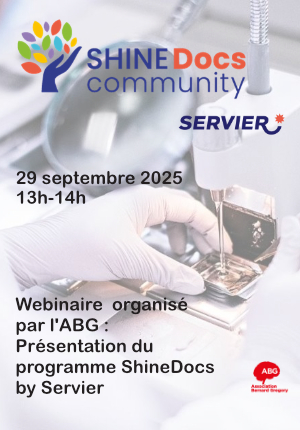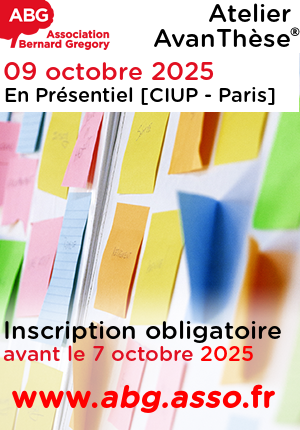Apprentissage profond et modélisation multi-espèces pour la cartographie des interactions écologiques et la régulation des ravageurs agricoles. // Deep learning and multi-species modelling for mapping ecological interactions and pest regulation in agricul
|
ABG-133369
ADUM-67406 |
Thesis topic | |
| 2025-09-10 | Other public funding |
Université de Montpellier
Montpellier cedex 5 - Occitanie - France
Apprentissage profond et modélisation multi-espèces pour la cartographie des interactions écologiques et la régulation des ravageurs agricoles. // Deep learning and multi-species modelling for mapping ecological interactions and pest regulation in agricul
- Computer science
Télédétection, Apprentissage Profond, Apprentissage Automatique, modèles de distribution des espèces, données multimodales, Agroécologie
Remote Sensing, Deep Learning, Machine Learning, Species Distribution Models, Multi-modal Data, Agroecology
Remote Sensing, Deep Learning, Machine Learning, Species Distribution Models, Multi-modal Data, Agroecology
Topic description
Cette thèse s'inscrit dans le projet EcoControl, qui vise à améliorer la compréhension des services de régulation des arthropodes et à identifier des leviers agroécologiques favorisant la régulation naturelle des ravageurs agricoles en France continentale, en Corse et en Guadeloupe.
L'objectif scientifique central est de développer et déployer des méthodes permettant de cartographier la probabilité d'interactions écologiques pertinentes pour la propagation et la régulation des ravageurs. Pour cela, il s'agira de combiner données de terrain, données opportunistes et enquêtes systématiques avec des approches numériques innovantes, en s'appuyant sur des modèles de distribution multi-espèces basés sur le deep learning (Ryckewaert et al., 2024).
La démarche prévoit :
1. la constitution d'un vaste jeu de données environnementales (OSO, Corine Land Cover, SAFRAN, Worldclim, Landsat, Sentinel),
2. l'entraînement de modèles de distribution d'espèces (SDMs) intégrant observations opportunistes et enquêtes (Isaac et al., 2020),
3. l'intégration d'informations issues de réseaux écologiques pour identifier les zones favorables à des interactions multiples entre cultures, ravageurs et auxiliaires,
4. l'utilisation d'outils d'IA explicable afin de rendre les prédictions interprétables et exploitables par les écologues et agronomes.
------------------------------------------------------------------------------------------------------------------------------------------------------------------------
------------------------------------------------------------------------------------------------------------------------------------------------------------------------
This PhD thesis is part of the EcoControl project, aiming to better understand arthropod regulatory services and identify agroecological levers for enhancing natural pest regulation in mainland France, Corsica and Guadeloupe.
The goal is to map the likelihood of ecological interactions relevant to pest spread and regulation by developing deep learning-based multi-species distribution models (SDMs).
This will involve:
1. creating a large-scale dataset of environmental and remote sensing variables,
2. training SDMs combining opportunistic observations and systematic surveys,
3. using ecological network information to identify locations supporting multiple ecological interactions,
4. applying explainable AI tools to improve interpretability and probabilistic predictions.
------------------------------------------------------------------------------------------------------------------------------------------------------------------------
------------------------------------------------------------------------------------------------------------------------------------------------------------------------
Début de la thèse : 01/10/2025
L'objectif scientifique central est de développer et déployer des méthodes permettant de cartographier la probabilité d'interactions écologiques pertinentes pour la propagation et la régulation des ravageurs. Pour cela, il s'agira de combiner données de terrain, données opportunistes et enquêtes systématiques avec des approches numériques innovantes, en s'appuyant sur des modèles de distribution multi-espèces basés sur le deep learning (Ryckewaert et al., 2024).
La démarche prévoit :
1. la constitution d'un vaste jeu de données environnementales (OSO, Corine Land Cover, SAFRAN, Worldclim, Landsat, Sentinel),
2. l'entraînement de modèles de distribution d'espèces (SDMs) intégrant observations opportunistes et enquêtes (Isaac et al., 2020),
3. l'intégration d'informations issues de réseaux écologiques pour identifier les zones favorables à des interactions multiples entre cultures, ravageurs et auxiliaires,
4. l'utilisation d'outils d'IA explicable afin de rendre les prédictions interprétables et exploitables par les écologues et agronomes.
------------------------------------------------------------------------------------------------------------------------------------------------------------------------
------------------------------------------------------------------------------------------------------------------------------------------------------------------------
This PhD thesis is part of the EcoControl project, aiming to better understand arthropod regulatory services and identify agroecological levers for enhancing natural pest regulation in mainland France, Corsica and Guadeloupe.
The goal is to map the likelihood of ecological interactions relevant to pest spread and regulation by developing deep learning-based multi-species distribution models (SDMs).
This will involve:
1. creating a large-scale dataset of environmental and remote sensing variables,
2. training SDMs combining opportunistic observations and systematic surveys,
3. using ecological network information to identify locations supporting multiple ecological interactions,
4. applying explainable AI tools to improve interpretability and probabilistic predictions.
------------------------------------------------------------------------------------------------------------------------------------------------------------------------
------------------------------------------------------------------------------------------------------------------------------------------------------------------------
Début de la thèse : 01/10/2025
Funding category
Other public funding
Funding further details
ANR Financement d'Agences de financement de la recherche
Presentation of host institution and host laboratory
Université de Montpellier
Institution awarding doctoral degree
Université de Montpellier
Graduate school
166 I2S - Information, Structures, Systèmes
Candidate's profile
- Master ou diplôme d'ingénieur (Bac+5) en informatique, écologie numérique, télédétection ou disciplines proches.
- Compétences requises :
- Programmation Python,
- Frameworks deep learning (PyTorch),
- Utilisation de serveurs Linux/GPU,
- Anglais scientifique écrit.
- Compétences appréciées :
- SIG et télédétection,
- Modèles de processus ponctuels et/ou SDMs.
- Motivation forte pour la recherche à l'interface biodiversité – agriculture – intelligence artificielle.
We are seeking a candidate that is strongly motivated to improve our understanding of the interaction between biodiversity and agriculture. Top candidates would also have a strong command of: Python programming Deep learning frameworks (preferably Pytorch) Use of Linux GPU severs via command line Written scientific English It would be a plus to have familiarity with: GIS and remote sensing Point process models and/or SDMs
We are seeking a candidate that is strongly motivated to improve our understanding of the interaction between biodiversity and agriculture. Top candidates would also have a strong command of: Python programming Deep learning frameworks (preferably Pytorch) Use of Linux GPU severs via command line Written scientific English It would be a plus to have familiarity with: GIS and remote sensing Point process models and/or SDMs
2025-09-30
Apply
Close
Vous avez déjà un compte ?
Nouvel utilisateur ?
More information about ABG?
Get ABG’s monthly newsletters including news, job offers, grants & fellowships and a selection of relevant events…
Discover our members
 Nokia Bell Labs France
Nokia Bell Labs France  Groupe AFNOR - Association française de normalisation
Groupe AFNOR - Association française de normalisation  MabDesign
MabDesign  Généthon
Généthon  SUEZ
SUEZ  ONERA - The French Aerospace Lab
ONERA - The French Aerospace Lab  Aérocentre, Pôle d'excellence régional
Aérocentre, Pôle d'excellence régional  ASNR - Autorité de sûreté nucléaire et de radioprotection - Siège
ASNR - Autorité de sûreté nucléaire et de radioprotection - Siège  TotalEnergies
TotalEnergies  Ifremer
Ifremer  ADEME
ADEME  Tecknowmetrix
Tecknowmetrix  Laboratoire National de Métrologie et d'Essais - LNE
Laboratoire National de Métrologie et d'Essais - LNE  ANRT
ANRT  PhDOOC
PhDOOC  Institut Sup'biotech de Paris
Institut Sup'biotech de Paris  CASDEN
CASDEN  CESI
CESI  MabDesign
MabDesign


